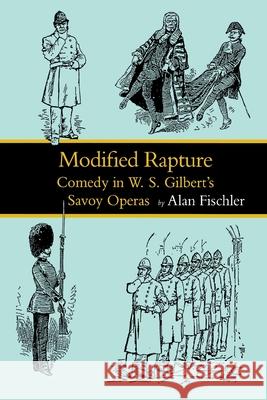Modified Rapture: Comedy in W. S. Gilbert's Savoy Operas » książka
Modified Rapture: Comedy in W. S. Gilbert's Savoy Operas
ISBN-13: 9780813929330 / Angielski / Miękka / 2015 / 160 str.
Modified Rapture: Comedy in W. S. Gilbert's Savoy Operas
ISBN-13: 9780813929330 / Angielski / Miękka / 2015 / 160 str.
(netto: 146,96 VAT: 5%)
Najniższa cena z 30 dni: 150,29
ok. 22 dni roboczych.
Darmowa dostawa!
The professional success achieved by W. S. Gilbert was unique in nineteenth-century English theater: he was the first dramatist ever to be knighted for his stage works, which yielded him a fortune that his less prosperous playwriting predecessors could scarcely have imagined. The Savoy operas-so called after the theater at which most of them were originally produced-were comedies. But comedy, in its traditional form, was hardly congenial to the prevailing social prejudices of the Victorian age: it features the triumph of rebelliousness over laws and rules, ridicules the keepers of the established order, and celebrates the victory of the erotic instinct over repression. Spectacles of this kind were especially uncomfortable for the newly arrived middle class, intent on making itself conspicuous for its dedication to respectability and duty. In fact, before Gilbert's Savoy productions, many of the bourgeoisie refused altogether to patronize the English stage, where the dominant form was comedy in its various guises. Beginning with H. M. S. Pinafore, Fischler demonstrates how Gilbert made it his business to cater to the sensibilities of the middle class through the structure he imposed on his plots, the approach he took to characterization, and the treatment he accorded erotic love, the quintessential theme of comedy. The book's conclusions not only illuminate Gilbert's own comic practice but point the way toward a new understanding of the transactions between comedy in general and the spirit of the Victorian age.











